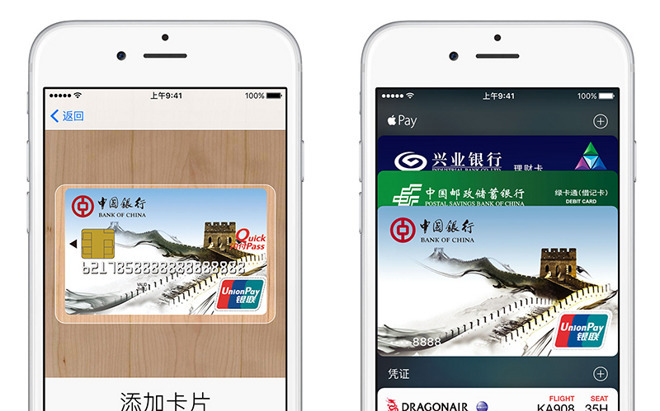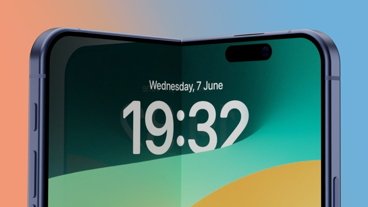In order to launch Apple Pay in the lucrative China market, Apple agreed to halve its normal transaction fee for the country's banks, a report said on Monday.
Whereas Apple is thought to claim about 0.15 percent per transaction in the U.S., the equivalent fee is approximately 0.07 percent in China, sources informed Caixin. American merchants can sometimes pay up to 2 percent in overall fees for a card transaction, but in China, the total can be as low as 0.38 percent — making an extra 0.15 percent a comparatively large burden.
High fees are believed have been the major resistance point in negotiations during 2015. Apple ultimately announced a deal in December, and launched the payment platform with 19 Chinese banks on Feb. 18, though not all partners are yet live.
Sign-up demand was intense enough on Thursday that a number of people ran into error messages when trying to add cards. Traffic has since stabilized.
Apple has suggested that China could eventually become the largest market for Apple Pay. The service is currently available in just a handful of regions, the others being the U.S., the U.K., Canada, and Australia. In the latter two countries it can only be used with American Express cards, which aren't commonplace. Spain, Singapore, and Hong Kong are among planned expansions.
 Roger Fingas
Roger Fingas


 Amber Neely
Amber Neely
 Oliver Haslam
Oliver Haslam
 Thomas Sibilly
Thomas Sibilly
 Marko Zivkovic
Marko Zivkovic

 Wesley Hilliard
Wesley Hilliard
 Malcolm Owen
Malcolm Owen
 Andrew Orr
Andrew Orr


-m.jpg)






12 Comments
Makes sense. Apple Pay isn't important to Apple because of the revenue it brings in (which is not materially significant), but because of the value, convenience, and stickiness that it adds to its products and ecosystem.
Thanks Apple. Now reduce fees for Australia please where the banks also (apparently) take a smaller cut than the 2% in the USA.
I hope Apple can make the same concessions in Canada and elsewhere to help increase usage globally.
I don't get why you guys think Apple will suddenly go cheap worldwide, that's why this type of news is bad and I'm very surprised it's being reported.
China is a strict market so they had to go cheaper but they're HUGE so a small fee is still a great deal when your population is over a billion.
It probably is just a matter of volume - .07% times the Chinese user base is a lot bigger than .15% of, say, the Australian user base. Which is a pain for us, because they probably won't want to go to Westpac or NAB with this offer, especially as they have already negotiated the deal with AmEx.
And it's a pain for Apple, as it gives the banks a new talking point: "You changed it for China, why not for us?" Telling them it's because of the volume of the market is just going to get them to say "Apple don't care about Australia", and take the moral high ground.
It would be good for consumers if they were a bit more flexible in their rates, but something big is going to need to happen before they will.